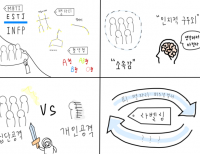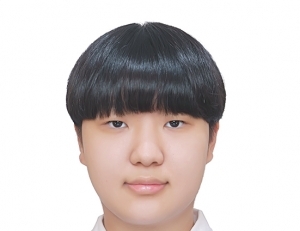
Everybody might have worries in their life, such as “Why am I so bad at concentrating?” or “Why am I so careless and make many mistakes?” If you are repeating this kind of self-accusation, you need to question whether it’s a disease before blaming yourself. The reason why you need to be suspicious of symptoms like having a short attention span is that it might be a sign of adult ADHD. ADHD is a wellknown disorder in children, but recently adults are also having the same problem. ADHD is short for Attention Deficit Hyperactivity Disorder, but sometimes it is used as a generic term for symptoms such as short attention spans and being impulsive. If you don’t treat these kinds of symptoms and instead just let them keep happening, there will be difficulties in your childhood and more than 60% of people will suffer from the same symptoms even as they get older. Therefore, adult ADHD is the result of childhood ADHD.
Then, how does ADHD occur? The biggest causes of ADHD are hereditary and congenital brain development defects. For this reason, it is caused by the function of the frontal lobe that controls emotions and suppresses impulses. Genetic factors have a greater impact on adult ADHD incidence than environmental factors. When parents suffer from ADHD, the probability of their children having ADHD is 57%. Therefore, adult ADHD can't be “caught.” Symptoms can be detected in adulthood after not being detected in childhood, but it is impossible to get ADHD in adulthood without having ADHD in childhood or adolescence. If attention deficit seems to have occurred after adulthood, there is a high possibility that there are other causes such as depression disorder or anxiety disorder.
The main symptoms of ADHD in childhood include selective concentration, lack of patience, emotional control disorder, difficulty in organizing, unplanned thinking and behavior, and hyperactivity. Symptoms are similar in adulthood, but impulsivity and hyperactivity are reduced, and carelessness and lack of concentration get stronger. For this reason, unlike in childhood, it is also called "Quiet ADHD" because it is not easy to recognize the disease. Usually, you don't see any problems in your daily life, but if you have difficulty starting or finishing something, are forgetful, or make frequent mistakes, you can suspect adult ADHD. In addition, contrary to the prejudice that concentration will be low, people with adult ADHD show excessive concentration in certain areas and are severely stressed by the obsession to work perfectly. Adult ADHD patients are often smart and creative, unlike in childhood where those with ADHD have difficulty with studying. Therefore, it is hard to determine whether an adult has ADHD only based on cognitive ability.
Recently, MBTI has gained a lot of attention and the features of each MBTI also became an issue. Nowadays, various hypotheses and researchers are focusing on the correlation between the features of each MBTI and ADHD, and through this, they are trying to demonstrate it. One hypothesis claims that the feature of ENFP has similarities with adult ADHD. In fact, representative features of ENFP are similar to the symptoms of adult ADHD, such as a lack of concentration, impulsiveness, and making several attempts before doing one thing perfectly. The interesting part is that the correlation between MBTI and ADHD isn’t a coincidence; it has proven scientific evidence. The relationship between the type of character / creativity and adult ADHD that used MBTI and TTCT was investigated. A study of 110 adults proved the correlation between MBTI and ADHD. The result of the investigation shows that the test subjects who has intuition (N) and perceiving (P) had a correlation with adult ADHD. However, there are various claims and hypotheses about the existence of the correlation between MBTI and ADHD, so you don’t need to think about this seriously.
Adult ADHD Self-Checklist
Question | Never | Rarely | Neutral | Sometimes | Always |
Do you have difficulty finishing a job with regard to the details that are relevant to the core part of the job? |
|
|
|
|
|
Do you have difficulty getting things done in order when you do systematic work? |
|
|
|
|
|
Have you ever had a hard time because you forgot about something you had to do? |
|
|
|
|
|
Do you avoid or postpone troublesome things? |
|
|
|
|
|
How often do you touch or wiggle your hands or feet when sitting for a long time? |
|
|
|
|
|
Are there times when you are unstoppably active, as if you have a motor? |
|
|
|
|
|
▲As part of the ASRS self-diagnosis developed by WHO, if more than four are applicable, a formal test for adult ADHD is recommended.
Having ADHD may not be a big problem in one’s life right now. However, due to lack of attention, it takes a long time to finish work, resulting in poor achievement or self-esteem, or it may cause problems in interpersonal relationships due to severe emotional ups and downs. In addition, secondary problems such as depression disorder, anxiety disorder, and impulse control disorder can occur, so treatment is recommended. In the case of adult ADHD, medication, psychological counseling, and cognitive behavioral therapy are used as parallel treatments. As the diagnosis of adult ADHD has been increasing recently, if you show continuous problems in terms of concentration, you need to learn about your condition and how to cope with it.
78th Reporter • KIM DA ON • daonda0904@naver.com
79th Reporter • NAM HYE SEUNG • namhyeseung50@gmail.com
- TAG
-
 Freedom Given to Youth: An Opportunity for Choice or a Burden of Constraint?
“Are we truly free today?” Classical literature is far more than time-honored stories. It offers profound insights into human nature and society that transcend time, remaining a valuable resource for examining the challenges our world faces today. This article will draw on George Orwell’s 1984 and Charles Dickens’ Oliver Twist to explore the contemporary issues of youth housing and the emergence of a surveillance society ...
Freedom Given to Youth: An Opportunity for Choice or a Burden of Constraint?
“Are we truly free today?” Classical literature is far more than time-honored stories. It offers profound insights into human nature and society that transcend time, remaining a valuable resource for examining the challenges our world faces today. This article will draw on George Orwell’s 1984 and Charles Dickens’ Oliver Twist to explore the contemporary issues of youth housing and the emergence of a surveillance society ...

 [단신] 산악회, 본교 동문의 버팀목이 될 수 있도록
[단신] 산악회, 본교 동문의 버팀목이 될 수 있도록
 [사회메인] 노인 인구 1,000만 시대, 준비 없는 사회가 불안해
[사회메인] 노인 인구 1,000만 시대, 준비 없는 사회가 불안해
 [네컷만화] 라벨링 문화
[네컷만화] 라벨링 문화
 [진리터] 결국 우리 모두 돌아볼 것이니
[진리터] 결국 우리 모두 돌아볼 것이니

 목록
목록











